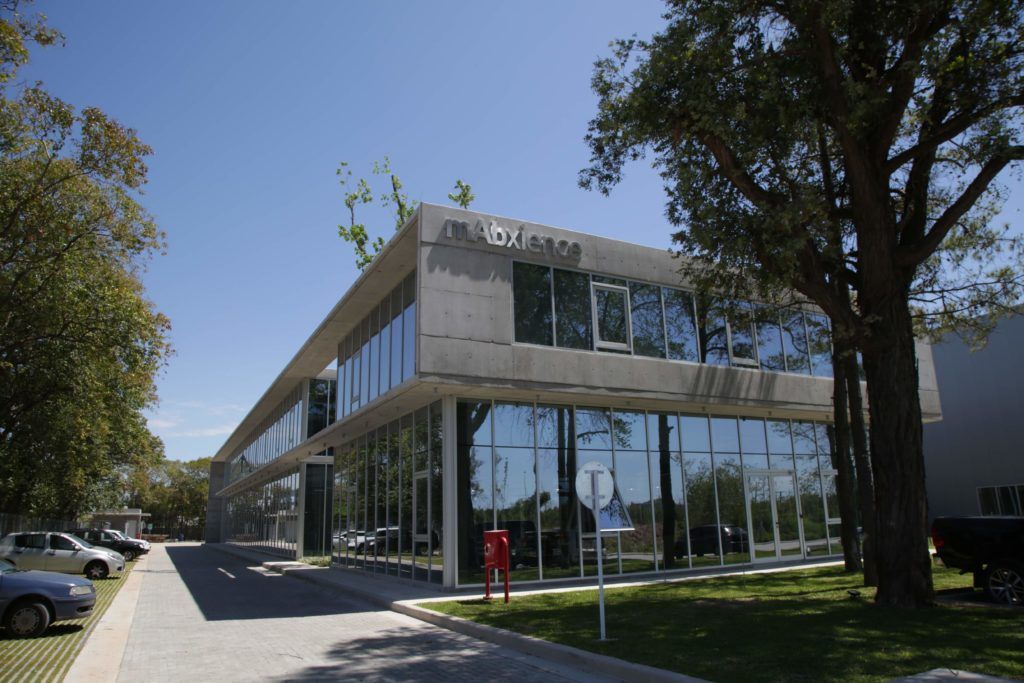- Bone Health
- Immunology
- Hematology
- Respiratory
- Dermatology
- Diabetes
- Gastroenterology
- Neurology
- Oncology
- Ophthalmology
- Rare Disease
- Rheumatology
mAbxience Beefs Up Its Biosimilar Production Capacity
mAbxience, which has been churning out AstraZeneca's COVID-19 vaccine, is ramping up its biosimilar capacity.
Spanish biosimilar company mAbxience said it will equip its Good Manufacturing Practice–certified facility in Leon with a high-volume custom single-run 4000 L bioreactor, which it said will be installed and operational by mid-2021, thereby boosting the biosimilar and other biologics manufacturing capacity of the plant.
Established in 2010, mAbxience has multiple biosimilars in development and in January 2021 gained a positive recommendation for approval from the European Medicines Agency’s Committee for Medicinal Products for Human Use (CHMP) for its bevacizumab biosimilar candidate Alymsys. Upon final approval, Alymsys would be available as a 25 mg/mL concentration for infusion. Bevacizumab binds to vascular endothelial growth factor and inhibits blood vessel development that supports tumor growth. Alymsys references Avastin, which has been available in the European Union since January 2005.
At the same time the positive recommendation for Alymsys was issued, CHMP also gave a thumbs up for another bevacizumab biosimilar candidate, Oyavas, which is being developed by the Stada Group of Germany. Both products are intended for the treatment of colon and rectum cancer, breast cancer, non–small cell lung cancer, renal cell carcinoma, epithelial ovarian, fallopian tube or primary peritoneal cancer, and carcinoma of the cervix.
The company is also known for its license with AstraZeneca to produce the active ingredient in the company’s controversial COVID-19 vaccine (AZD1222) at mAbxience’s plant in Garín, Argentina. The AstraZeneca vaccine has been under scrutiny for possible connection to blood clots. And most recently, although the vaccine is considered effective in warding off COVID-19 infection, its degree of effectiveness as reported by AstraZeneca has been called into question. Some countries have temporarily suspended use of the shot and others are paying close attention to the developments.
At mAbxience, the agreement was to produce more than 200 million doses of the vaccine to be supplied to all countries in Latin America except Brazil.
In 2014, mAbxience launched a rituximab biosimilar (Novex, MB01). That remains its first launched biosimilar. The Garín plant was officially opened early last year. “mAbxience has saved in Argentina the equivalent of $400 million since it started marketing biosimilar monoclonal antibodies, and its presence in the market has forced the country’s only seller of imported products to lower its prices,” said Hugo Sigman, founder of the Insud Group, which encompasses mAbxience.
Eye on Pharma: BI Cyltezo Partnership; Europe Ustekinumab Launch; Mexico Biosimilar Approval
July 24th 2024Boehringer Ingelheim (BI) partners with GoodRx to offer its unbranded adalimumab biosimilar to patients at an exclusive low price; a new ustekinumab biosimilar launches in Europe; and Mexican officials approve a bevacizumab biosimilar.
Biosimilars Oncology Roundup for June 2024—Podcast Edition
July 7th 2024On this episode of Not So Different, we review biosimilar news coming out of June, with clinical trial results from conferences and a study showcasing how to overcome economic and noneconomic barriers to oncology biosimilars.
A New Chapter: How 2023 Will Shape the US Biosimilar Space for 2024 and Beyond
December 31st 2023On this episode of Not So Different, Cencora's Brian Biehn and Corey Ford take a look back at major policy and regulatory advancements in 2023 and how these changes will alter the space going forward.

